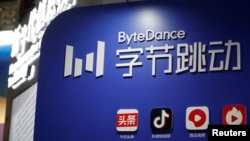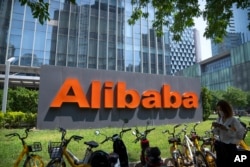With a flood of capital and the arrival of big tech companies, Singapore has become a new top location for China business. And while it has given the tiny nation’s economy a boost, not all are pleased.
At the official level, the relationship is portrayed as blossoming. Earlier this month, China’s state media touted a meeting in Singapore of 200 Singaporean and Chinese business leaders and policymakers that called for enhanced business ties, improved intellectual property protection, and support for mediation and arbitration.
While the Xinhua article focused on the importance of the Chinese market to Singapore, the city-state has been attracting many foreign-funded companies, including Chinese companies, and in 2022 overtook Hong Kong to become Asia’s top financial center and the third biggest in the world.
Hundreds of Chinese companies are estimated by business insiders to have quietly re-domiciled or registered themselves in Singapore between November 2021 and November 2022, reports the Financial Times, which notes the exact number of Chinese companies set up is unclear because Singapore does not disclose origin country in its public statistics.
A growing list of Chinese tech companies such as Alibaba, ByteDance, Huawei, Kuaishou, China Telecom and China Mobile have directed their investments to Singapore for data centers and labs. Singapore is ranked as the top innovation hub outside of Silicon Valley, housing 80 out of the world’s 100 tech firms, says Guide Me Singapore, a Hawksford company entity offering business set-up and support services.
While the business has been welcomed, critics say the flood of Chinese capital has brought an increase in illegal activities to Singapore, also known as the Lion City, highlighting problems with the city-state’s supervision measures.
Aya Adachi, director of Mapping China, tells VOA that Singapore introduced a new legal structure in 2020 called the Variable Capital Company or VCC, which was intended to attract the assets of fund managers and family offices registered in low-tax jurisdictions such as the Cayman Islands and Luxembourg.
The “change in the Singaporean regulatory environment has attracted more Chinese illegal activities, said Adachi, whose German non-profit group monitors China's foreign and economic affairs. “But that was obviously not intended by the Singaporean government in the first place."
Maíra Martini, a research and policy expert at anti-corruption group Transparency International, told the Financial Times that the risk with VCCs is that they "usually function like a black box" and "can be very attractive to the corrupt and other criminals."
Singapore in August uncovered the largest money laundering case in its history, involving $3 billion in cash and assets, reports the Singapore Straits Times, and 10 suspects arrested were of Chinese origin.
In an article in Asia Sentinel earlier this month, Andy Wong Ming Jun said Chinese companies use Singapore-registered firms to make their businesses look less connected to China, a process known as “Singapore Washing.”
He wrote that this was having diplomatic and reputational consequences for Singapore "as the geopolitical waters between China and the West, particularly the U.S., become increasingly choppy."
In an emailed comment to VOA following the publication of the story, Singapore's Embassy in Washington D.C. highlighted the island nation's "robust system to deter and tackle money laundering and other illicit financial flows."
"We welcome legitimate investors and businessmen, but we have zero tolerance for criminals who abuse our system, wherever they may come from," said Singapore Ambassador to the U.S. Lui Tuck Yew.
Video sharing application Tiktok moved its Asia headquarters from Beijing to Singapore, amid increased scrutiny of its Chinese parent company Bytedance and questions whether it could protect consumer data from the Chinese government.
However, some believe the criticism of Singapore Washing is deliberately looking at Chinese investment in a colored light.
Tan Khee Giap, chairman of the Singapore National Committee for Pacific Economic Cooperation, pointed out that European and American multinational companies have also come to Singapore, but are not accused of Singapore Washing. The same is true of Japanese and Korean companies that have moved their regional headquarters to the city-state.
Why target only China, he asked. “Because China may have a political system and values that are different from those of Europe and the U.S."
Former attorney general of Singapore Walter Woon agrees.
"Of course, there will be some people who use Singapore as a base, but that's not confined to people of Chinese ethnicity. Like any other financial center, Switzerland, for example, you're likely to find a certain number of groups. Even America is not free from crooks who set up and use America as a base," he said.
Mapping China’s Adachi says Singapore wants to maintain a politically neutral image while struggling to stop a surge in criminal activities from China, which could force Singapore to change direction.
"To some degree, I think the Singaporean government is faced with having to introduce stricter measures to prevent these illegal Chinese activities from happening. And that might conflict with the idea of maintaining a free, less complicated regulatory environment," she says.
Adrianna Zhang contributed to this report.
Editors note: This story has been updated to include comment from Singapore's Embassy in Washington





